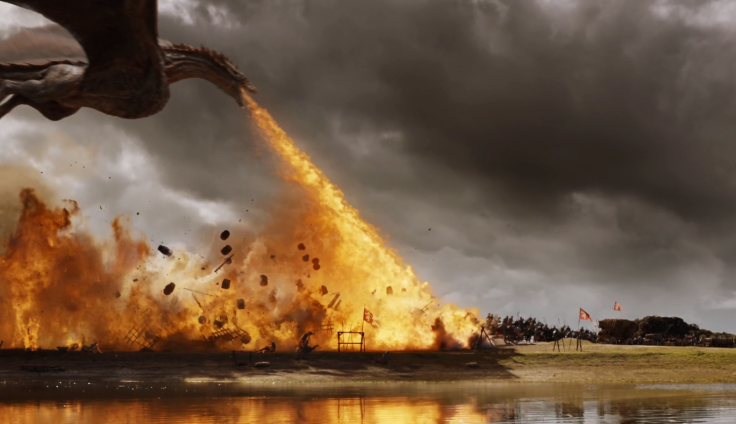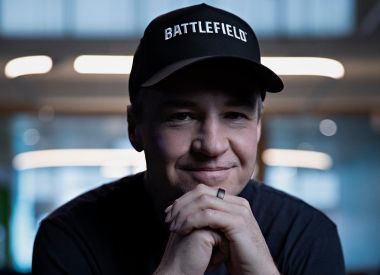The latest episode of Game of Thrones Season 7, “The Spoils of War,” reveals Dany’s dragons to be terrifying weapons of asymmetric warfare: the fantasy equivalent of the atomic bomb. As large as a 747, Drogon swoops down on the Lannister line and exhales a cone of fire 30 feet in diameter. Wood and flesh evaporate in an instant. Those on the outskirts of the crematory flames (though cremation can only accomplish Drogon’s work with three hours at 1800 degrees) are stripped of skin in an instant. Drogon’s flames reduce standing men to pillars of ash, terror frozen in their forms until the wind scatters them apart.
“I wanted to focus on Jaime and Bronn and what it was like to be on the ground in battle when you see warfare change forever — when you see this giant weapon from sky, [like] when napalm or the atom bomb was introduced into traditional warfare, and what it was like on the ground,” episode director Matt Shakman told Vulture.
We all knew it would be like this — we’ve seen these dragons torch boats, goats and children. And Jaime, the scion of an educated and worldly Westeros family, should have known too. Every educated child in Westeros knows of the cataclysmic Dance of Dragons and what Aegon and his dragon Balerion did to Harrenhal. But many things, from dragon’s breath to global warming worst-case scenarios, are too terrible to understand in the abstract. We may read the cold recitation of statistics and imagine we have an understanding of some dire event, but we don’t, not really. Instead, we’re like the lords of the North, who “believe” Jon Snow about the army of the dead and the White Walkers and the Night King, but have no visceral understanding fuelling that belief. And so they are divided, just as concerned with politics as their imminent destruction. If you’re not acting on the necessary outcomes of a belief, do you really believe at all?
In 1982, the philosopher Frank Jackson came up with the knowledge argument against physicalism, proposing the thought experiment “Mary’s room.” Mary is a scientist trapped in a black and white room, interfacing with the world only through black and white monitors. She researches and learns everything that can be known about the color blue. Will she learn anything new when she’s released from the room, looks at the sky and sees the color blue for the first time? Jackson (and your horse sense) probably says “yes.” Reading about a color isn’t seeing color. It’s this ineffable, intrinsic, privately subjective and “immediately apprehensible” (four properties developed by Daniel Dennett, a skeptic of Jackson’s epiphenomenalism) experience — in this case of the color blue — that’s known in philosophy as qualia. This theoretical qualia is the substance of our subjective experiences, which we cannot share with others.
But this isn’t color, or love, or the taste of wine. This is the terror of annihilation and the acknowledgment of powers so far beyond human capacity the only choices are how to die — whether to fight or surrender before its sublime violence. This is where the power of this latest episode lies. Beyond ending on an incredible action scene, “The Spoils of War” lingers on the human face in the moments when the incomprehensible becomes dreadfully real. Nikolaj Coster-Waldau gives to Jaime a look of mounting dread. The incomprehensible has become real and sights beyond rational acceptance must finally be comprehended. With calamity, there is a certain clarity. Stripped of its illusions, life reveals itself to be death. The nukes were pointed at you all along, you just couldn’t believe it yet.
- Fully realized, intricate world
- Compelling characters
- Plot twists you won't see coming
- Lots of ground to cover if you're new to the series
- Don't get too attached to anyone
- Two words: Sand Snakes



















